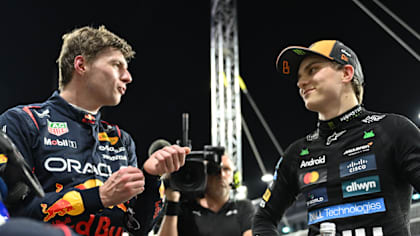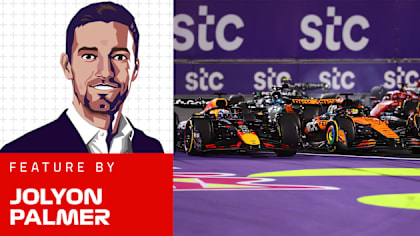)
Feature
From on-track history makers to strategy masterminds – Six trailblazing women of F1 past and present

Share
)
With the 2024 F1 ACADEMY season having kicked off in Jeddah – marking the beginning of a calendar which will see the category race alongside Formula 1 weekends throughout the year – a new generation of women and girls are making their way in the world of motorsport.
The series aims to champion the next generation of female talent, while initiatives such as F1 ACADEMY Discover Your Drive offer opportunities at a grassroots level to inspire young girls and women to explore possible paths in the motorsport field.
READ MORE: ‘It’s super important’ – Formula 1 drivers show support ahead of second F1 ACADEMY season
It signals the latest development in what will hopefully be a promising future for female participation in motorsport, a journey that first began with the impact made by many trailblazing women in both the past and present of Formula 1.
In celebration of International Women’s Day, we reflect on the stories of six of those women who made their mark in F1 both on and off the track.
Maria Teresa de Filippis – First woman to race in F1
Born in Naples in 1926, Maria Teresa de Filippis enjoyed various sports as a teenager before trying her hand at racing cars – in a bid to prove her two older brothers wrong after one bet the other that she couldn’t drive fast. She made her competitive debut in 1948, finishing second in a local hill-climb at the wheel of a Fiat Topolino. Her mother’s advice was: “Go slow and win”.
From there de Filippis’ ascent through motorsport took her to Formula 1, where she became the first female driver to compete in a championship race in 1958. After initially failing to qualify in Monaco, she qualified in 19th place for the Belgian Grand Prix, racing the Maserati 250F. De Filippis crossed the line in 10th.
READ MORE: F1 ACADEMY 2024 season to be broadcast in over 160 territories and streamed live globally
She went on to enter the Portuguese and Italian Grands Prix but retired in both events. After eventually stepping away from racing following the deaths of other drivers, she returned to motorsport as part of the International Club of Former F1 Grand Prix Drivers in 1979, where she was appointed vice-president in 1997. De Filippis passed away in 2016 aged 89.

De Filippis became the first woman to compete in a Formula 1 championship race
Lella Lombardi – First woman to score a point in F1
Following de Filippis, four women have attempted to qualify for a world championship race. Maria Grazia ‘Lella’ Lombardi was – alongside fellow Italian de Filippis – one of the two to succeed in qualifying. Initially becoming interested in racing after driving the delivery van for her family’s butcher’s shop, she proceeded to compete in karts before progressing to Formula Monza in 1965 and then Italian F3.
After missing out on qualifying for the 1974 British Grand Prix, Lombardi went on to make her competitive Formula 1 debut with March in 1975. She retired in her first event in South Africa due to fuel system issues, before then making history by scoring half a point in her second outing at the Spanish Grand Prix.
READ MORE: Trailblazing racer Lella Lombardi remembered, 30 years on from her death
While her further F1 appearances did not yield the same success – despite narrowly missing out on points with an impressive seventh place finish in the 1975 German Grand Prix, a race in which she had been managing a puncture – she competed in other motorsport events such as the 24 Hours of Le Mans and founded her own racing team, Lella Lombardi Autosport. Lombardi passed away in 1992 aged 50 after battling breast cancer.
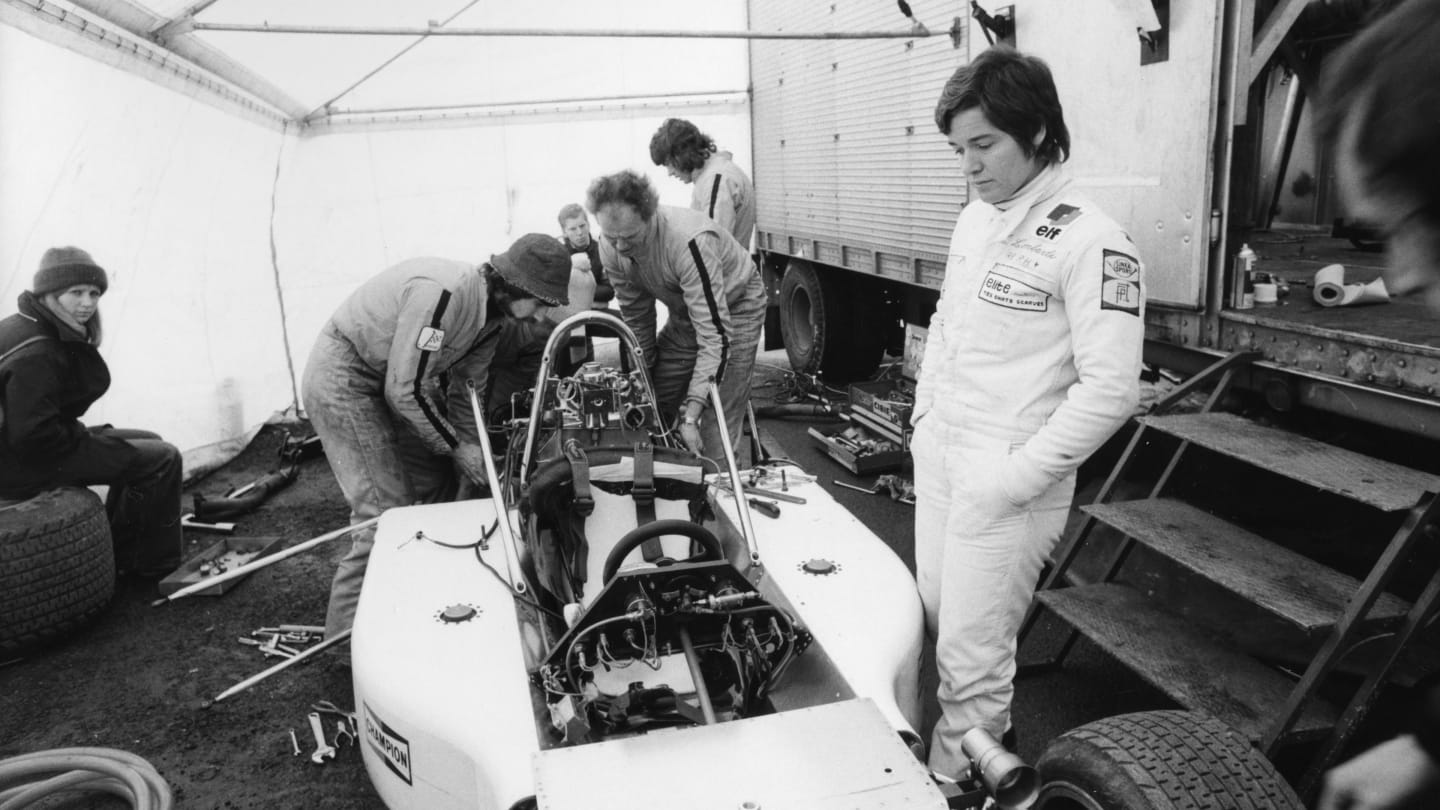
Lombardi made history by scoring half a point in the 1975 Spanish Grand Prix
Susie Wolff – Managing Director of F1 ACADEMY
In 2014, Susie Wolff became the first woman to participate in a Formula 1 weekend since 1992, when Giovanna Amati had failed to qualify for three Grands Prix. Wolff took part in a free practice session at the British Grand Prix for Williams, which was followed up by another outing at the German Grand Prix weekend that year.
This marked the latest achievement in Wolff’s growing motorsport career, which had started when she began karting at the age of eight before climbing the ranks in single-seater racing. She made further practice appearances in an enhanced test driver role for Williams in 2015 before opting to retire from racing at the end of the year.
Wolff’s pioneering work in motorsport did not end there, though. She co-founded the non-profit Dare to be Different organisation in 2016, aiming to increase the participation of women in motorsport.
The Scot joined the Venturi Racing Formula E outfit as Team Principal in 2018, where she remained until 2022 before becoming Managing Director of F1 ACADEMY in 2023. Since then the category has seen a range of exciting developments as it enters into its second campaign.
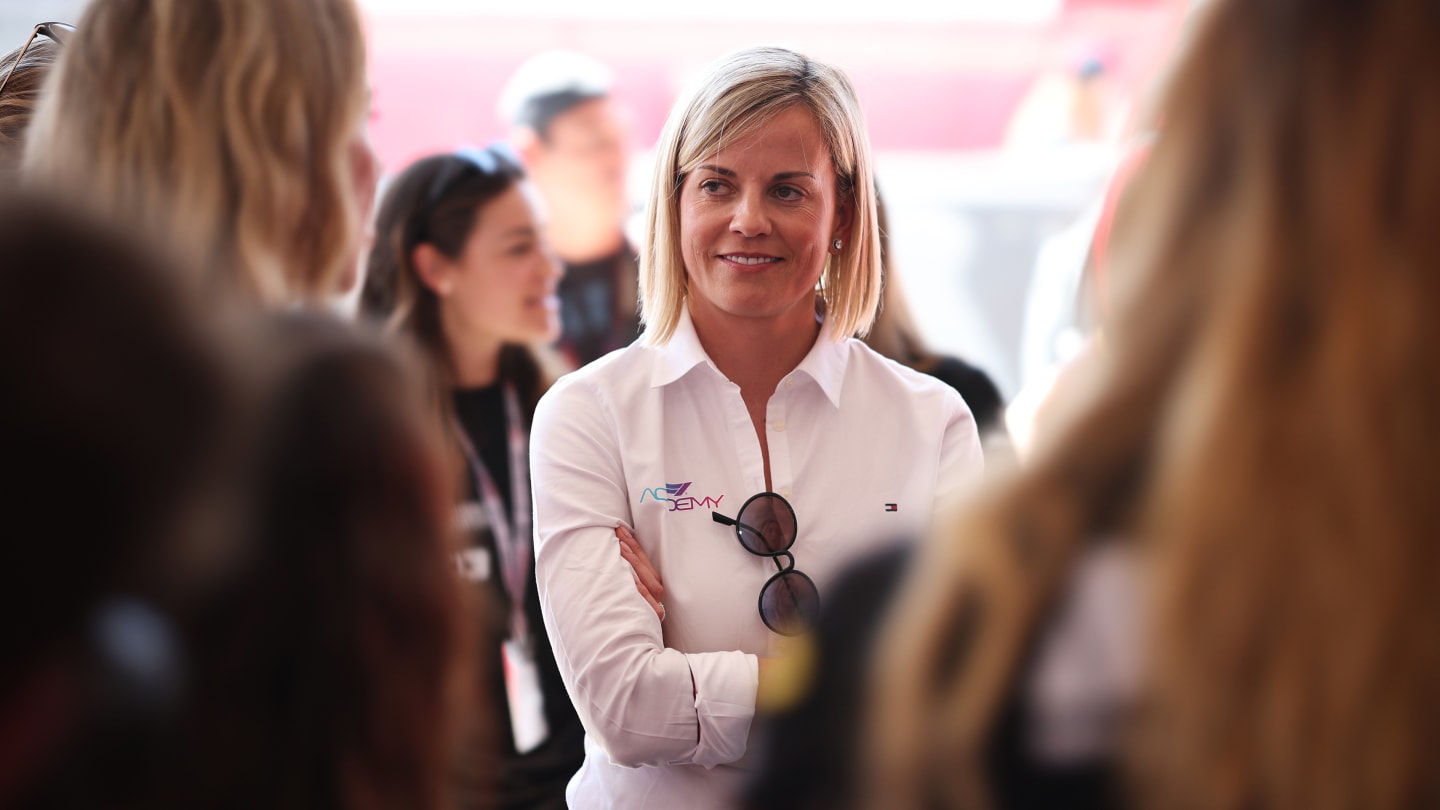
Wolff became Managing Director of F1 ACADEMY ahead of the category's inaugural campaign in 2023
Monisha Kaltenborn – First female Team Principal in F1
Wolff is not the only woman to make her mark as a Team Principal in motorsport. In the world of Formula 1, Monisha Kaltenborn made history when she was appointed CEO of the Sauber outfit in 2010 before becoming the sport’s first ever female Team Principal in 2012.
Indian-born lawyer Kaltenborn had worked within the squad for many years as head of their legal department before taking over the role when eponymous team owner Peter Sauber retired. She had also become part owner in 2011 after buying shares.
LISTEN: 'A total shock' – Ex-Sauber boss Monisha Kaltenborn recalls the BMW-Sauber split of 2009
Kaltenborn left her position in 2017 after overseeing the running of the outfit for several seasons, with drivers who raced for the team during her period in charge including Nico Hulkenberg and Marcus Ericsson.

Kaltenborn was appointed Team Principal of Sauber in 2012, making her the first female Team Principal in F1
Hannah Schmitz – Principal Strategy Engineer at Red Bull
Given their unprecedented levels of success over the past two years, it has not been unusual in recent times to see celebrations on the Red Bull pit wall following a victory. One face regularly seen here is Hannah Schmitz, the team’s Principal Strategy Engineer who is responsible for making significant – and often split-second – strategic decisions.
After graduating from the University of Cambridge with a master’s degree in Mechanical Engineering in 2009, Schmitz initially worked for Red Bull as a Modelling and Simulation Engineer before switching over to strategy by 2011. She went on to become Principal Strategy Engineer in 2021, the year in which Max Verstappen clinched his first drivers’ championship.
From there Schmitz has acted as a key component in Red Bull’s success during 2022 and 2023, with some of her strategy calls being credited as critical in securing victories. Amongst these was the 2022 Hungarian Grand Prix, where the last-minute decision to start Verstappen on the soft tyres from 10th on the grid ultimately enabled him to claim a surprise victory.
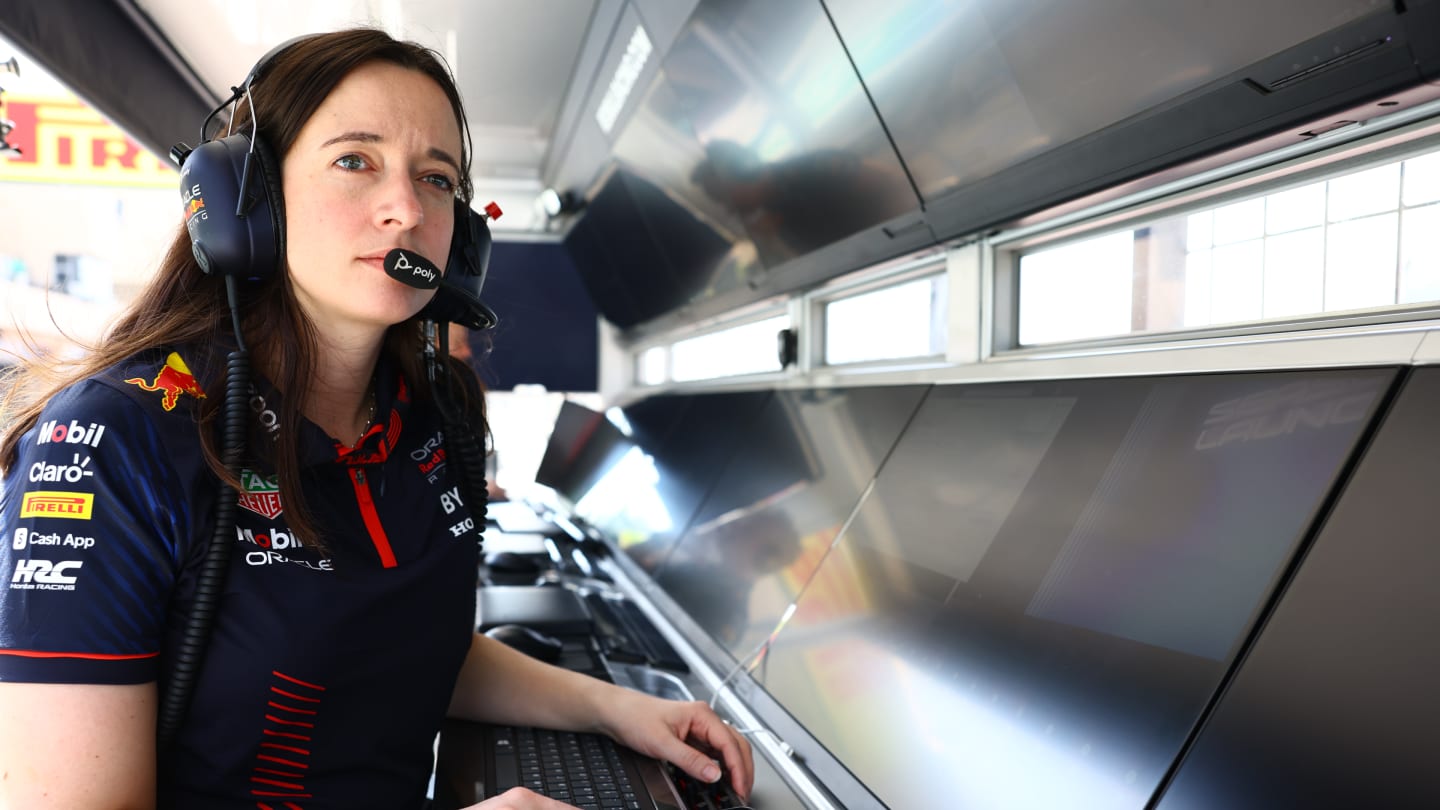
Schmitz has made some crucial strategy calls in her role as Principal Strategy Engineer at Red Bull
Marta Garcia – First F1 ACADEMY champion
While all eyes are on who will triumph in the new season of F1 ACADEMY – and whether any of the new arrivals on the grid can challenge those who showed promise in 2023 – one driver who won’t be there from last year’s field is Marta Garcia.
And it’s all for a good reason. The Spaniard has now moved on to a new challenge in motorsport after being crowned the first ever F1 ACADEMY champion, with Garcia being awarded a fully funded seat in Formula Regional European Championship by Alpine (FRECA) for the year ahead as part of F1 ACADEMY’s mission to support its winner in progressing through the ranks.
Garcia impressed many en route to the title in 2023. The PREMA Racing driver won the first ever race of the category in Spielberg before going on to score a further seven victories, five pole positions and a total of 12 podiums on her way to winning the title at Race 1 of the season-closing weekend in Austin.
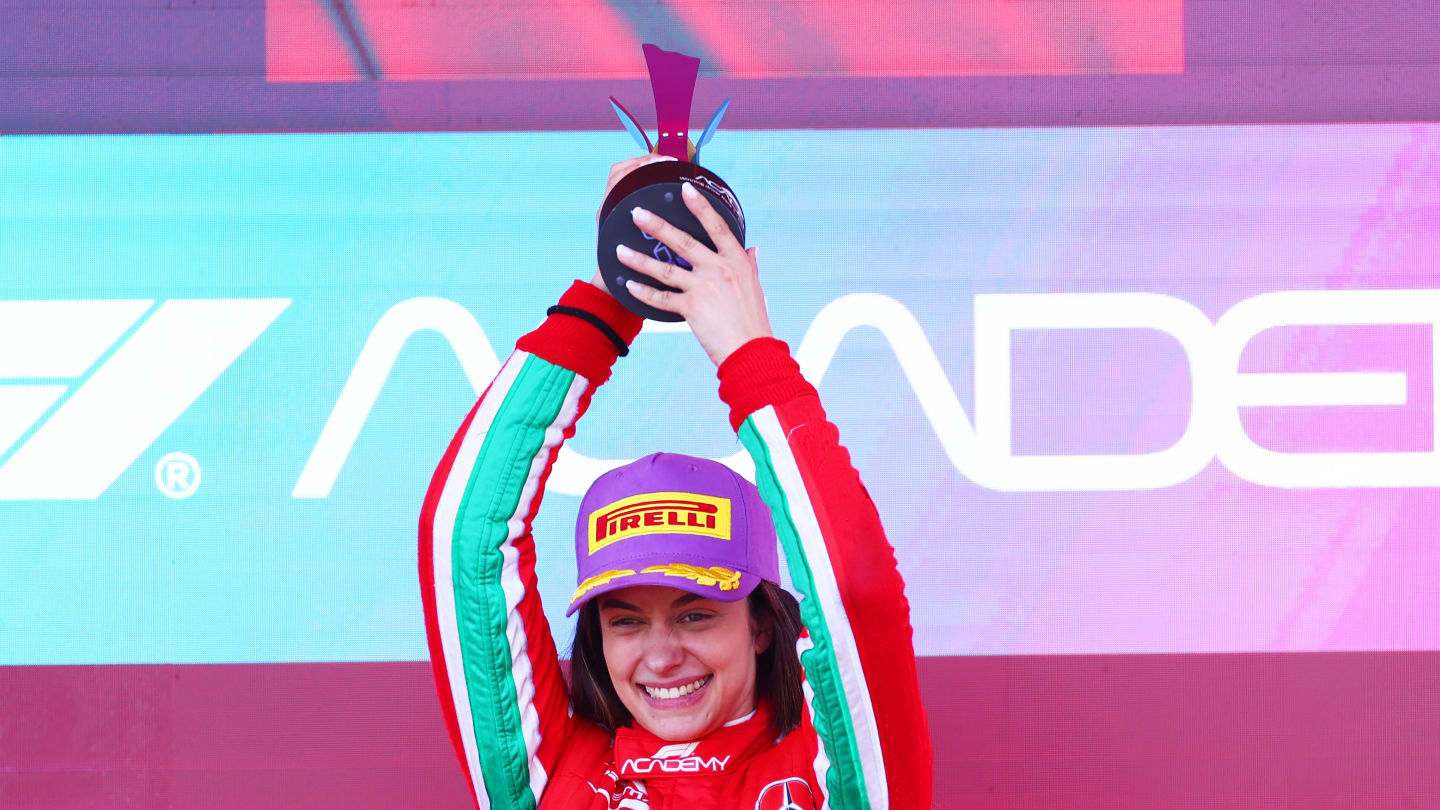
Garcia is now embarking on her next challenge in motorsport after winning the first F1 ACADEMY title in 2023
YOU MIGHT ALSO LIKE
News 'That's what you need to fight for a championship' – Verstappen reveals key Piastri trait that could help him in title battle
FeatureF1 Unlocked BARRETTO: The Saudi Arabian GP proved things are starting to click for Williams’ new all-star driver line-up
OpinionF1 Unlocked PALMER: Verstappen’s Turn 1 penalty proved decisive in Jeddah, so were the stewards right?
News F1: The Academy documentary series to launch on Netflix in May

